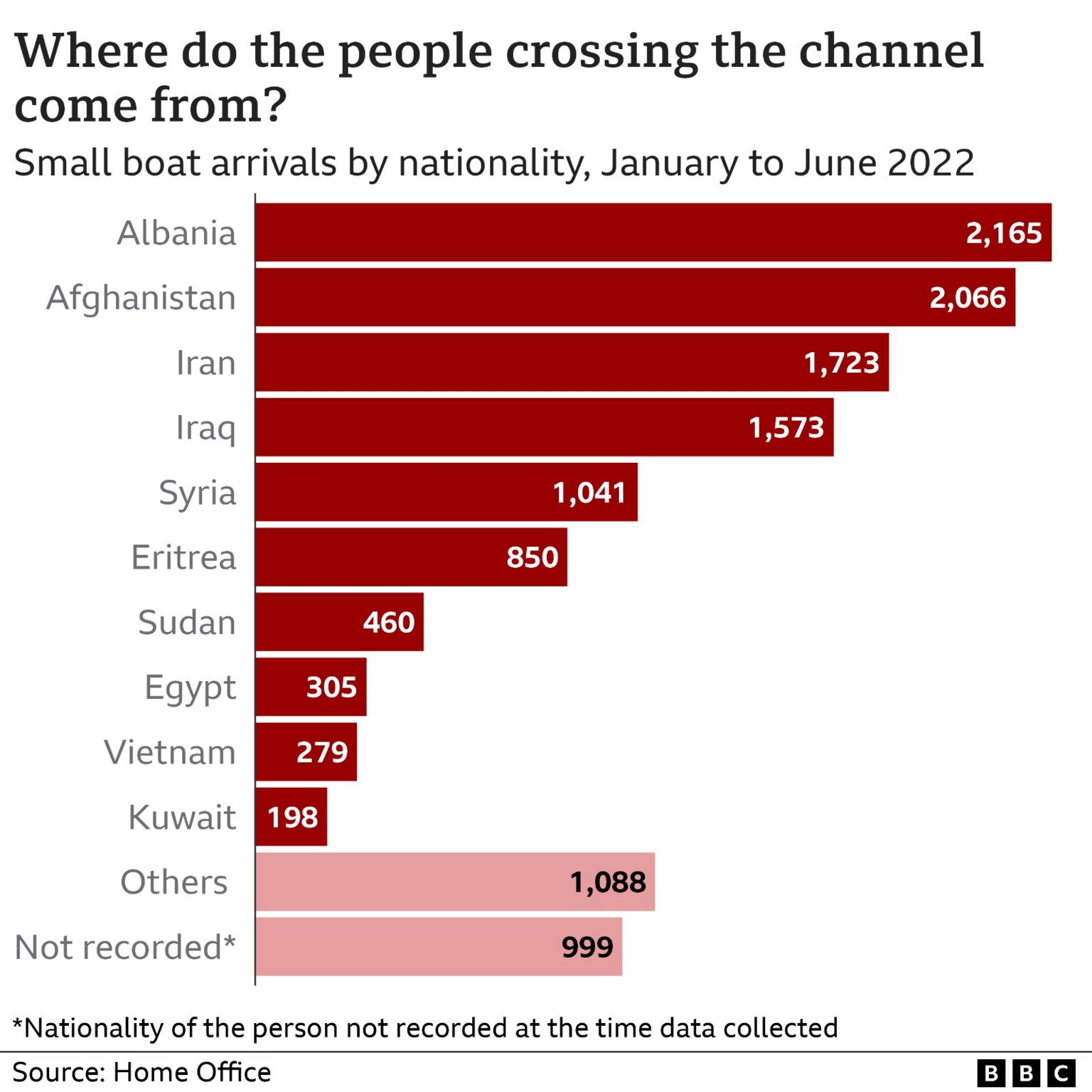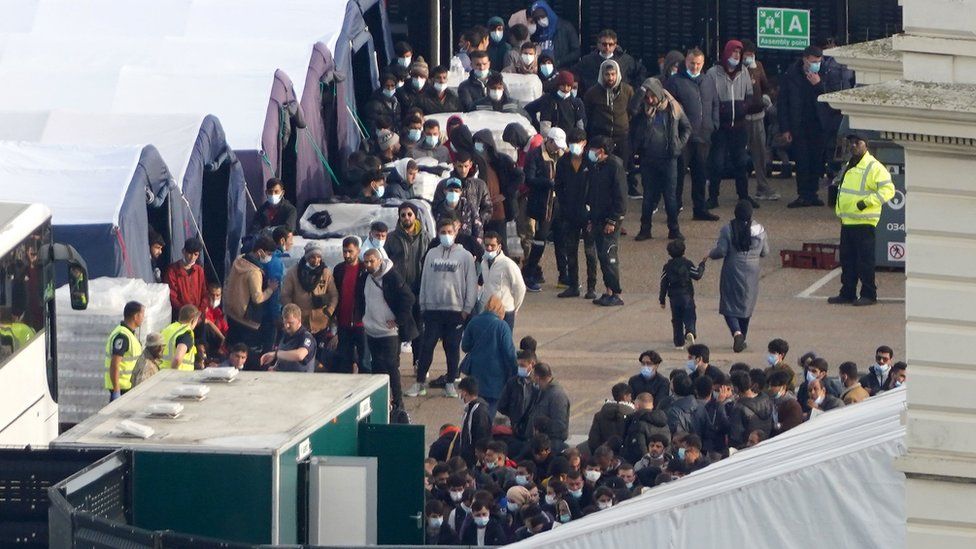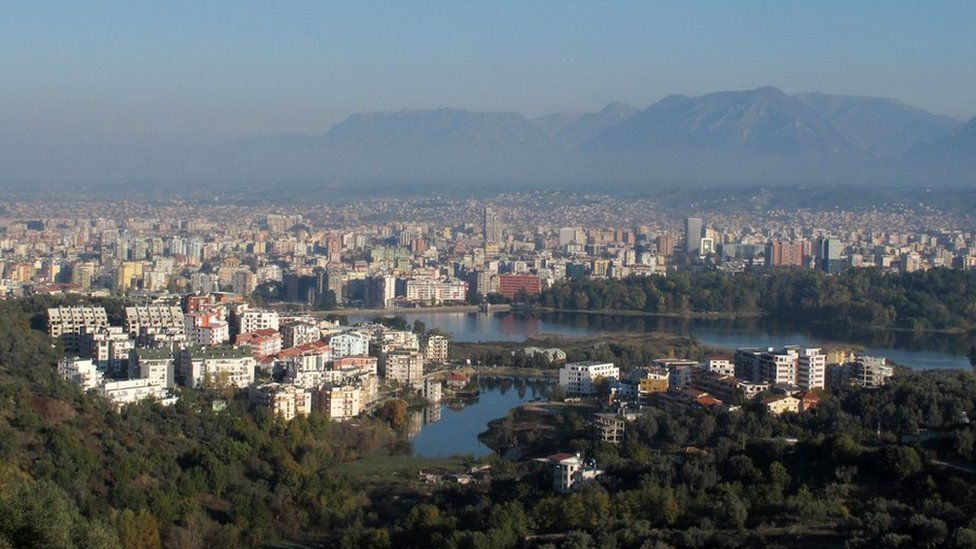BBC News 2 November 2022
Immigration Minister Robert Jenrick has highlighted the number of Albanian migrants arriving in the UK this year.
On some small boats, "80% of the individuals are coming from Albania", he told MPs.
How many Albanian migrants come to the UK?
There has been a rapid increase in the number of Albanians migrants crossing the English Channel:
- In 2020, 50 arrived on small boats
- In 2021, 800 made the crossing
- In 2022, 12,000 have arrived so far
"The rise has been exponential and we think that is in the main due to the fact that Albanian criminal gangs have gained a foothold in the north of France," Clandestine Channel Threat Commander Dan O'Mahoney told the Home Affairs Select Committee last week.
Of this year's Albanian migrants, about 10,000 were single, adult men, he said.
How many Albanian migrants are granted asylum?
In the year to June 2022, 7,267 asylum applications were submitted by Albanian migrants, double the number the previous year.
In general, 53% of claims by Albanians are accepted.
About 14% of successful claims were by single, adult men. Most were by women and children.
Some Albanian migrants are believed to make asylum claims on the grounds they have been trafficked to the UK.
Albanians are the most commonly referred nationality for trafficking support in the UK.
Rather than claiming asylum, some Albanian migrants choose to disappear and work illegally in the UK, before returning to their home country, Mr O'Mahoney said.
Eligible Albanian citizens can apply for visas, of varying length, to enter the UK for tourism, business, study and other activities.
How many Albanians are sent back?
In 2022, in the six months to June, 440 people were returned to Albania - almost all were single, adult men.
Albanians represent the highest number of foreign offenders sent back in the year to March 2022.
A bilateral agreement signed in 2021 by then-Home Secretary Priti Patel aimed to speed up the removal of Albanian criminals and failed asylum seekers from the UK.
"More than 1,000 Albanians, including some who crossed the Channel illegally to come to the UK" have been sent back under this agreement, the Home Office says .
The deal does not allow the government to remove Albanians with a current asylum case in the UK.
What makes migrants leave Albania?
Three decades after the collapse of Enver Hoxha's dictatorship and the opening of Albania's borders, about 60% of the country's adult population wanted to leave, according to a Gallup poll published in December 2018.
They cited corruption, low salaries, poor working conditions and a low quality of life as their main reasons.
The median net annual household income in Albania was just €1,997 (£1,720) in 2018, according to the latest available figures from Eurostat, while in the UK it was €21,464.
Albania has applied for EU membership and negotiations for this opened in July 2022.
Currently, Albanian citizens can enter the EU visa-free and stay for up to 90 days in any 180-day period as tourists - but they do not have an automatic right to work, study or live there.
What are the concerns about Albanian gangs?
Briefing MPs about Albanian migrants, Mr O'Mahoney said: "There are undoubtedly people who need our help - but there is also a large number who are deliberately gaming the system."
He went on to highlight the role of Albanian criminal gangs in the UK.
A National Crime Agency (NCA) report published earlier this year said these gangs were responsible for importing industrial-scale cannabis farming to the UK.
Albanian gangs are also leading players in the UK's £5bn cocaine market, the NCA says.
In 2017, an Albanian national was imprisoned after running a cocaine-smuggling operation worth an estimated £60m.
There has been a rise in anonymous accounts on TikTok advertising transfers of people from Albania to the UK, according to a Balkan Insight report from August this year.
The adverts offer to take people to the UK from France on boats or from Belgium in lorries, at a cost of £2,000-5,000 each.
Last year, the Home Office launched an extension of its Prevent programme to divert at-risk Albanian teenagers from joining gangs trafficking people and cocaine to the UK.
Albanian prime minister Edi Rama has said in a tweet: "UK should fight the crime gangs of all nationalities and stop discriminating v Albanians to excuse policy failures."



